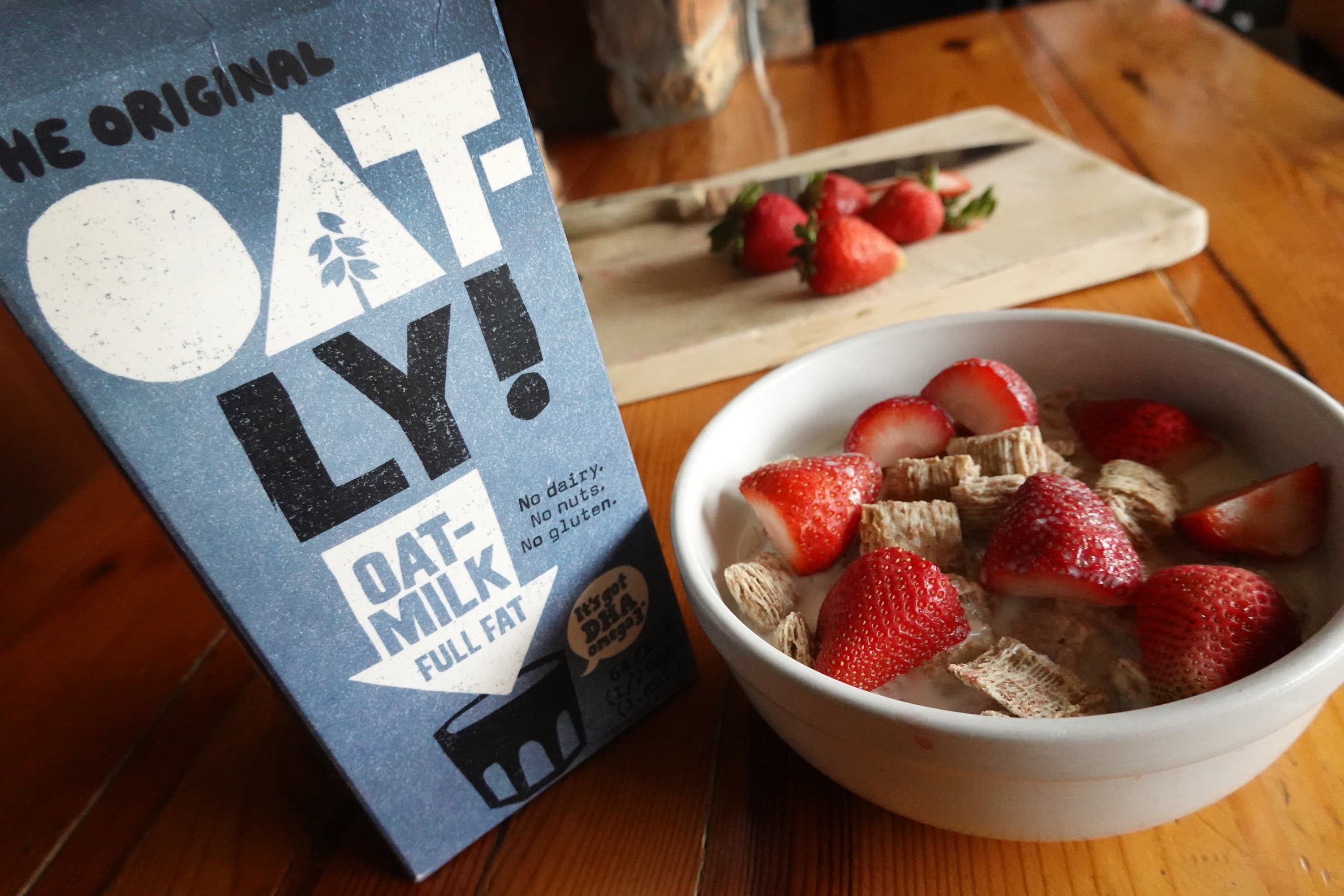DIGITAL MARKETING NEWS
Oatly accused of overstating revenue and greenwashing by activist short Spruce Point
In this photo illustration Oatly oat milk is shown on May 20, 2021 in Chicago, Illinois.Scott Olson | Getty ImagesActivist short seller Spruce Point Capital Management has accused Oatly of shady accounting practices and misleading consumers and investors about its sustainability practices.The firm, which has taken a short position against the maker of oat milk, called for Oatly’s board to hire an independent forensic accountant to open an investigation into its claims.The stock, which was down nearly 3% in premarket trading before the news, hit an all-time low of $19.84 per share on Wednesday. Shares rebounded slightly, falling just 2% in morning trading.Oatly was founded in Sweden in the 1990s but didn’t reach the U.S. until five years ago. Since then, it’s contributed to the surging demand for oat-based milk substitutes, primarily among coffee drinkers, and made its U.S. public market debut about two months ago. The stock is up 4.5% since its initial public offering, giving it a market value of $12.5 billion, as of Tuesday’s close.However, Spruce Point’s report claims that Oatly misled investors by omitting or manipulating key facts in its prospectus and a June investor presentation and argues that the company will never achieve profitability. “We don’t think any of this is in the narrative at the moment,” Spruce Point founder and Chief Investment Officer Ben Axler said in an interview. “We think this is a strong sell, and the stock price could be 70% overvalued.”Axler has previously taken short positions against other consumer packaged goods companies, like Church & Dwight and Boulder Brands. Short sellers borrow shares and then sell them, betting that the stock will fall. According to S3 Partners, about 1% of Oatly’s float, or the number of shares available on the market, is being shorted, as of Tuesday.When reached by CNBC, an Oatly spokesperson didn’t have an immediate response to Spruce Point’s allegations.Accounting allegationsSpruce Point alleges that Oatly has overstated both its revenue and margins to investors.The short seller’s report points to the company’s recent investor presentation, which showed estimated 2018 U.S. revenue of $12 million. The firm said that both Nielsen and Umgas Magazine, a Swedish publication, reported that Oatly’s net U.S. sales were just $6 million in 2018.Spruce Point also cited the company’s filings with Companies House, the U.K. agency that stores information on limited companies.”We observe periods of large divergence in revenue and accounts receivable growth rates at Oatly,” the report said. “This is a classic sign of potential accounting shenanigans and is often cited as a top red flag to predict accounting scandals.”Additionally, Spruce Point alleges that Oatly is overstating its gross margin. The company does not include outbound shipping and handling costs in its calculations, and fails to disclose that its gross profit presentation is not comparable to that of other food companies. The report alleges that Oatly’s gross margin is actually 6.4% lower when logistics and shipping are factored in.The firm also claimed to find anomalies about Oatly’s capital expenditures between its cash flow statement and additions to the balance sheet.Spruce Point argued that the company hasn’t been transparent with investors about key figures involved in its accounting and auditing. For example, Oatly has allegedly run through three auditors in six years, a fact that was not disclosed in its filings to go public.”From our experience this is highly unusual,” the report said. “… While auditor rotations can be viewed positively, we believe three auditors in six years is excessive in light of the accounting anomalies we have identified related to sales, gross margins, inventories and capex.”Oatly’s current auditor is Ernst & Young, according to a recent filing with the Securities and Exchange Commission.The report noted that Chief Financial Officer Christian Hanke’s biography on the company’s investor relations website does not make note of his role as the manager of financial reporting for Stratus Technologies from 1999 to 2005. During that time, the company had to restate its financial results for fiscal 2004 and the first quarter of fiscal 2005. Hanke does disclose the job on his LinkedIn page.Additionally, Oatly appointed Frances Rathke as chair of its audit committee. In her time as chief financial officer, treasurer and chief accounting officer of Green Mountain Coffee Roasters, the SEC investigated the company’s accounting practices, forcing the company to restate its financial results. Rathke’s biography on Oatly’s website does not include her former role as the coffee company’s chief accounting officer. Her LinkedIn page details her time with the company.Claims of greenwashingOatly has also branded itself as a more sustainable option than cow’s milk or other nondairy alternatives to both consumers and investors. But Spruce Point alleges that the company has been giving a misleading impression of its green credentials, which is known as greenwashing, and putting its global expansion ahead of its mission.Among the examples it cites is the company’s June 2021 presentation to investors, which uses data based on a 2013 study that was updated three years later. The data does not include the impact of the company’s expansion into Asia or the United States.Spruce Point also alleges that Oatly has cherry picked the data by omitting that its water consumption is higher than that of making cow’s milk. The company’s 2019 sustainability report also showed that its New Jersey plant was using 55% more water for every liter of oat base than its facilities in Sweden and the Netherlands.For several quarters, the New Jersey facility has been out of compliance with the Environmental Protection Agency, the report said. The EPA’s website does not identify what the violation or violations are.Moreover, the hedge fund obtained documents through a Freedom of Information Act request to Millville, New Jersey that showed issues with the plant’s wastewater in 2019, but the company has not yet opened a wastewater treatment facility.”They’ve had very high levels of wastewater as a byproduct, but they’ve known since 2019, and they’re still in the process of dealing with that,” Axler said.The report also points to Oatly’s transportation as a major source of its environmental impact. According to Spruce Point, the company sources its oats from Western Canada and then ships them to its facility in New Jersey. For its expansion into Asia, Oatly is sourcing its oats from Sweden.
Source link











